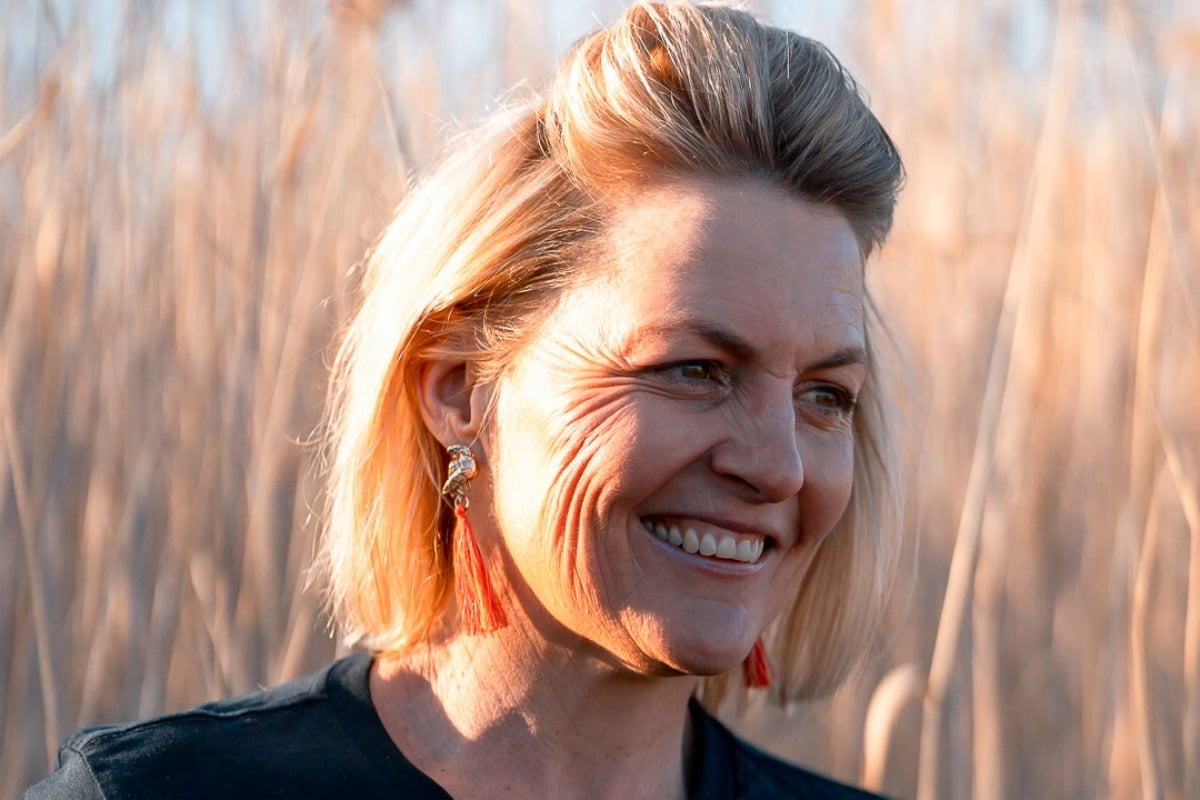
This post discusses alcohol addiction and suicide and may be triggering to some readers.
For years, Shanna Whan lived a double life.
From the outside, Shanna, who lives in northwestern New South Wales with her husband Tim and their dog, Fleabag, looked like any ordinary rural businesswoman.
"I ran and exercised. I worked 12-hour days and I could stand in front of a group of people and be an amazing public speaker," Shanna told Mamamia.
"People who didn’t know me well thought I was confident, outgoing and successful. But people close to me increasingly knew that there was something very, very wrong.
"I was literally living a double life."
Shanna Whan opened up about staying sober in the country on Australian Story. Post continues after video.
For years, Shanna slipped through the cracks of Australia’s rural health care system as an undiagnosed and untreated alcoholic.
Initially, Shanna’s relationship with alcohol began "as a harmless thing".


Top Comments
Totally applaud any initiatives in this area, but as someone who had to deal with an alcoholic parent for decades before they succumbed to the disease, I can sadly attest to the fact that ready availability of services are hardly available in the city, either. The whole sector is seriously under-gunned.
The saddest thing, it’s not a recent phenomenon. 35 years ago I worked in a small country town, having grown up just down the road. Every night after work, my routine was start the car, drive 150m to the bottle-o, pick up a six-pack of pre-mixed spirits, drive home and sink ‘em.
Only 5 things kept me from moving from “functioning alcoholic” to “rapidly spiraling alcoholic”:
1. My age - I was 18 and could physically get up the next morning. Couldn’t do it now at 50...
2. I’d drive home before cracking one open - I liked my job and needed my (p-plate) licence for work. And had to be 0.00 by morning to drive back - hindsight tells me I probably never was ...
3. Money. I was a cadet journalist, living at home rent-free, with my fuel coming from the farm account, so I could spend *all* my wage on booze, but $137.50 didn’t go far...but far enough in the mid-80s.
4. Reputation. There were only 2 pubs in the town, and only one of them had a drive-through - by Weds or Thurs of every week I was more and more embarrassed as the staff would see me in the queue, and have my “regular” in their hand by the time I got to the service area.
5. Parental pressure - I lived at home, so had parental pressure every day “oh, is that your third, or fourth tonight?”, etc. But that just meant I started dropping 2-3 cans in my room before I joined the family for the night...
I drank heavily from the age of 18, until I turned 46. One day, I just lost the taste for it. Can’t stand the smell of people with booze in them, can’t abide the taste. I’ve got mid-stage cirrhosis, so I’ll pay for it with 6-monthly scans for liver cancer for the rest of my life, and diminishing liver function even if the big C doesn’t come to visit.
But drinking is ALL I wanted to do for 35 or more years. Didn’t care what I missed out on, as long as I could drink. And drink. And drink. It’s a rough, shitty road. And, as a youngster in the country, there wasn’t a hell of a lot else to do - according to me. Nothing that was more attractive than booze anyway.